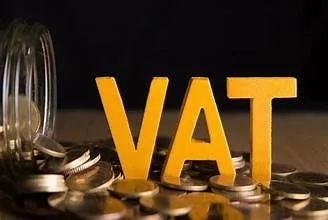The Federal Government of Nigeria has recently announced a significant update to its fiscal policy by exempting 63 items from Value-Added Tax (VAT).
This move is part of the government’s broader strategy to implement tax reforms aimed at stimulating economic growth and encouraging investment in key sectors, particularly oil and gas, automotive, and renewable energy.
Join our WhatsApp ChannelKey Announcement on VAT Exemption
The VAT exemptions were disclosed by Taiwo Oyedele, Chairman of the Presidential Committee on Fiscal Policy and Tax Reforms, through a post on X (formerly Twitter). The official gazette titled “Value Added Tax (Modification) Order, 2024” was published on September 3, 2024, and outlines the specifics of the exemptions.
This development follows a series of fiscal reforms aimed at revamping Nigeria’s economic structure. Recently, the Finance Minister and Coordinating Minister of the Economy, Wale Edun, revealed the government’s fiscal concessions to boost the oil and gas industry. Part of these reforms includes the VAT modification order and tax reliefs for deep offshore oil and gas production.
Major Items Exempted from VAT
The full list of items exempted from VAT includes products that are pivotal to the energy sector, automotive industry, and renewable energy. This exemption is intended to encourage the use of clean energy and the development of sustainable infrastructure.
Here are some notable items from the list:
- CNG/LPG Dual Fuel Vehicles
Dedicated LPG Vehicles and CNG/LPG Dual Fuel Vehicles
Parts, and semi-knocked down units (for assembly) of CNG and LPG buses.
Parts, and semi-knocked down units (for assembly) of Electric Vehicle
Electric Vehicles
Electric Vehicles Battery
Electric Vehicles Charging System
Electric Vehicle Solar Charging System
LPG/CNG Conversion Kits
CNG Cylinders
CNG Cascades
CNG Dispensers
Gas Generators
CNG Trucks (Bobtails and Bridgers; fixed axle and semi-trailers
Steel Pipes
Steel Valves & Fittings
SS Tubes & Fittings
Storage Tanks (all sizes)
Regulators
CNG Pumps and Compressors (all types)
Steel
Pressure Relief Valves
Hydraulic press/Rolling machine
Heat Treatment Equipment
Liquid Level Gauge
Pumping Housing and Motors
Regulator Body
Pressure Gauge
Truck Chassis
Metering and Measuring Equipment (including weighbridges, and filling scales)
Dispensing equipment (dispensing scales, nozzles, gas filling systems)
Safety Features (emergency shutoff valves, pressure relief valves, excess flow valves, breakaway couplings, quick release couplings)
Gas water heaters
Gas burners for industry
Gas boilers
Gas washing machines and dryers (launderettes) Household or laundry-type washing machines, including machines which both wash and dry.
CNG, LPG and Cyrogenic Hoses Tubes, pipes and hoses, and fittings thereof (for example, joints, elbows, flanges) of plastics.
CNG truck heads
Gas Leak Detectors
Gas air conditioners
Cylinder refurbishment equipment
Blending skid/unit
Odourizing unit
Chromatography unit (GC)
LNG Liquefying Equipment, Heat Exchangers, LNG Vapourizers, Regasification
Plant, Liquefied CNG Compression Terminals
LNG Plant, Machinery, Pumps, Compressors, Filters (Including Gas Filters),
Weighing Machines, Valves Equipment
Cyrogenic Storage Tanks, Liquefied CNG Conversion tanks
Pipes, Piping Fittings, and Flanges used for Liquefied Natural Gas processing
Electrical Equipment, including Cables for Liquefied Natural Gas processing
Steel Plates, Angles, and Bars for Liquefied Natural Gas Processing
LNG Related Chemicals
Biogas Digester
Biogas Compressor
De-sulphurisation units
Dryer
Distillation columns for processing biofuels
Bio-ethanol refinery equipment
Fermentation Tanks
Biofuel-related Chemicals, Enzymes and Reagents
Liquefied Petroleum Gas
Compressed Natural Gas
Feed Gas
Automotive gas oil
READ ALSO: Nigerian Government Exempts VAT On Diesel, LNG, CNG, Electric Vehicles To Lower Energy Costs
These tax exemptions also extend to gas-related products such as liquefied petroleum gas (LPG), compressed natural gas (CNG), and LNG-related machinery and equipment. The tax relief aims to reduce costs for industries engaged in developing sustainable energy solutions, thus promoting cleaner energy alternatives.
Impact of VAT Exemption on Economic Growth
The decision to exempt these 63 items from VAT is expected to have far-reaching effects on various sectors of the economy. For instance, the exemption of electric vehicles and their components will likely drive the growth of the electric mobility industry in Nigeria, reducing the reliance on fossil fuels and improving environmental sustainability.
Similarly, tax reliefs on biofuel and renewable energy equipment can accelerate the country’s transition towards cleaner energy sources. With VAT exemptions on items such as biogas compressors, bio-ethanol refinery equipment, and LNG processing machinery, businesses in the energy sector may experience reduced operational costs, which could lead to lower energy prices and increased investment in alternative energy technologies.
Furthermore, the exemption of automotive gas oil (AGO) from VAT, with retroactive effect from October 1, 2023, is particularly significant for industries that rely on diesel for their operations. This could result in reduced costs for manufacturers, transport companies, and other businesses that heavily depend on diesel-powered machinery.
Government’s Broader Tax Reform Plans
These VAT exemptions come on the heels of broader tax reforms aimed at enhancing Nigeria’s fiscal framework. The Federal Government recently approved a series of economic stabilization bills, which include changes to the tax system that are expected to spur economic growth. One of the major changes involves the potential establishment of a single agency—the Nigeria Revenue Service—to handle all government revenue collections, as opposed to the current system where multiple agencies are involved.
President Bola Tinubu’s administration has been proactive in pushing for reforms that simplify tax regulations, making it easier for businesses to comply while maximizing government revenue. By exempting key items from VAT, the government is sending a clear message that it is committed to fostering a business-friendly environment and promoting sectors that are critical to Nigeria’s long-term economic stability.
A New Fiscal Path for Nigeria
The exemption of 63 items from VAT represents a forward-thinking approach by the Nigerian government to encourage investments in strategic industries such as clean energy, automotive manufacturing, and oil and gas. These reforms not only aim to create a more favorable business environment but also align with global efforts to promote sustainability and reduce carbon emissions.
As the country continues to implement its fiscal reforms, it is expected that these VAT exemptions will attract more local and foreign investment, driving economic growth and improving the standard of living for Nigerians.
Emmanuel Ochayi is a journalist. He is a graduate of the University of Lagos, School of first choice and the nations pride. Emmanuel is keen on exploring writing angles in different areas, including Business, climate change, politics, Education, and others.


















Follow Us